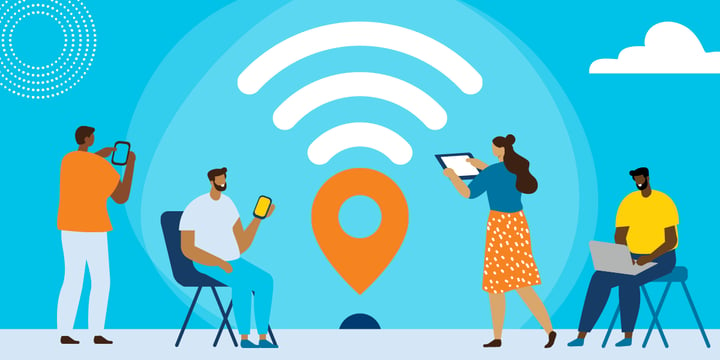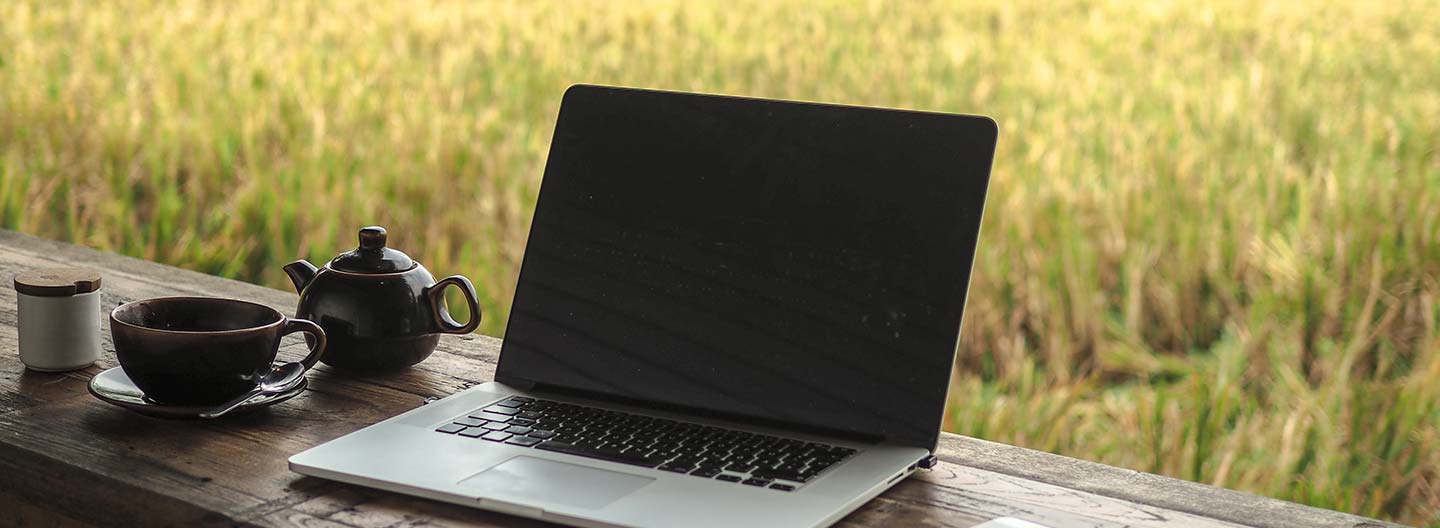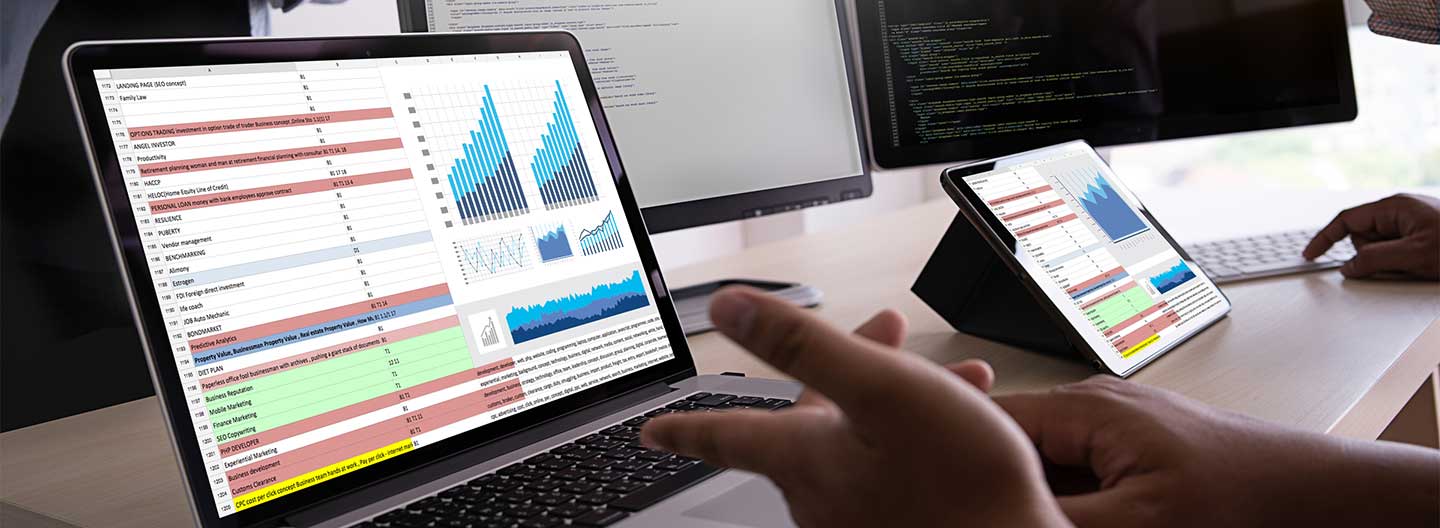It was in March 2020 when the pandemic hit hard and everything started to close down, including schools across the country. Schools having to hold virtual classes exposed a massive digital divide across the country. In 2019, the FCC reported that 21.3 million Americans (or 6.5 percent of the population) lacked access to broadband Internet. Microsoft estimated that the digital divide was much worse than that. By April, teachers at schools across the United States reported that fewer than half of their students were regularly participating in online classes. There was clearly not nearly enough home broadband to go around. Enter mobile hotspots.
Building broadband infrastructure is very expensive and takes a long time to develop. There have been Internet deserts in large parts of rural America and also our cities for a long time. There has been a growing movement among libraries and nonprofits since 2012 to "loan out the Internet" using mobile hotspots. Hotspots are small devices that provide Wi-Fi broadband Internet connectivity for multiple computers or Wi-Fi-enabled smartphones and tablets. Hotspots are usually the size of a pack of cards and are super easy to use.

TechSoup's Mobile Beacon Program
TechSoup and Mobile Beacon's device donation program is a unique partnership of two nonprofit organizations. Together, TechSoup and Mobile Beacon supply the lowest-cost mobile broadband to charities and libraries in the nation. Through this program, each Mobile Beacon hotspot costs $15 plus $120 per hotspot for a 12-month Mobile Beacon service plan for unlimited Internet service — no caps — plus an additional shipping and handling fee. This broadband is fast enough to stream Netflix or to enable students to participate fully in virtual classes.
Since the program began in 2012, TechSoup has received requests for nearly 63,000 hotspots. Since January 1, 2020, we've received requests for 16,661 hotspots — over a quarter of the total. It has been hard to keep up with demand during this pandemic year.
Hotspots to the Rescue
Thousands of libraries including those in Houston, Los Angeles, New York, and Chicago have been using them to loan out the Internet to patrons. All they need is a library card. Hotspots are affordable enough for the smallest rural libraries to circulate them to patrons.
David LaCrone, digital branch manager at The Kansas City Public Library, says: "Unlimited data from Mobile Beacon is a game changer for the Library's hotspot lending partnership with the public school district. It sends the message that we value, trust, and support the often-vulnerable families we serve."
Others have recently joined the movement as well. School districts that serve vulnerable and disabled students in 26 states will receive free Wi-Fi hotspots from AT&T and the nonprofit Connected Nation. Connected Nation is a national nonprofit that provides communities with broadband technology and support.
Innovation
While loaning out the Internet to address the digital divide is the main use for mobile hotspots, there has been some exceptional innovation in their use. Here are some examples.
- The nonprofit Youth Inspiration Nation uses hotspots to provide underprivileged kids with motivation, inspiration, and education through their flight simulator enrichment program. They hope to inspire the next generation of pilots, engineers, police officers, firemen, doctors, and space explorers. Read more about their work here.
- Dynamic Community Solutions is a place of healing for formerly homeless individuals, including children, working families, and elders. This nonprofit organization relies on Mobile Beacon hotspots to provide Internet to a village of 250 houseless people on the Hawaiian island of Oahu who otherwise struggled to apply for their stimulus checks.
- The faith-based organization Anchor House in Palmetto, Florida, helps any and all international seafarers, truckers, and the community at Port Manatee, Florida. It uses hotspots to provide Internet onboard ships in port so they can stay in touch with their loved ones despite not being able to leave the ships regularly due to COVID.
- Newport News Public Library in Virginia won an Urban Libraries Council Innovations Honorable Mention for 2020 (PDF). The library took the Internet on the road to fill the digital access gaps created when the library spaces closed due to COVID-19. Library staff drove to designated locations throughout the city according to a published schedule and made Wi-Fi hotspots available for at least two hours, allowing up to 30 simultaneous free connections. Signs were posted at each location with information on how to connect personal devices to the hotspots.
- TechSoup and Mobile Beacon partner PCs for People is a national nonprofit electronics refurbisher and recycler headquartered in St. Paul, Minnesota. Its mission is all about digital inclusion. Through the Bridging the Gap partnership, it has distributed Mobile Beacon hotspots and affordable Internet access to over 165,000 low-income families nationwide. It has supplied nearly as many very-low-cost computers to families and nonprofits across the country as well.
Find more examples of innovative uses of hotspots at the Mobile Beacon Moments Storytelling contest.
Not the Whole Solution, but a Piece of the Puzzle
While TechSoup is proud to be involved in supplying very-low-cost mobile broadband via hotspots to charities and libraries, the digital divide in the country is massive. To bring broadband to the estimated 157 million people in the U.S. who do not have it yet in their homes will be a challenge to all of us — government, business, schools, libraries, and nonprofits. It will require significant policy changes like the current Emergency Broadband Benefit Program.
However, we have to admire the great emergency work during this pandemic that libraries, schools, and nonprofits have done to use what tools we have — like hotspots — to address the problem. It is impressive work!
The Mobile Beacon Connect for Success Grants
Do you know of a school that needs hotspots? The Mobile Beacon Connect for Success grants are available to schools in eligible cities that are interested in starting a mobile learning lab, a program to help close the homework gap, or a program to aid in professional development for teachers. Applications are accepted on an ongoing basis.






